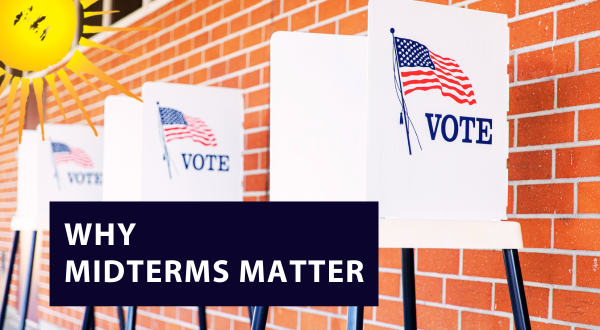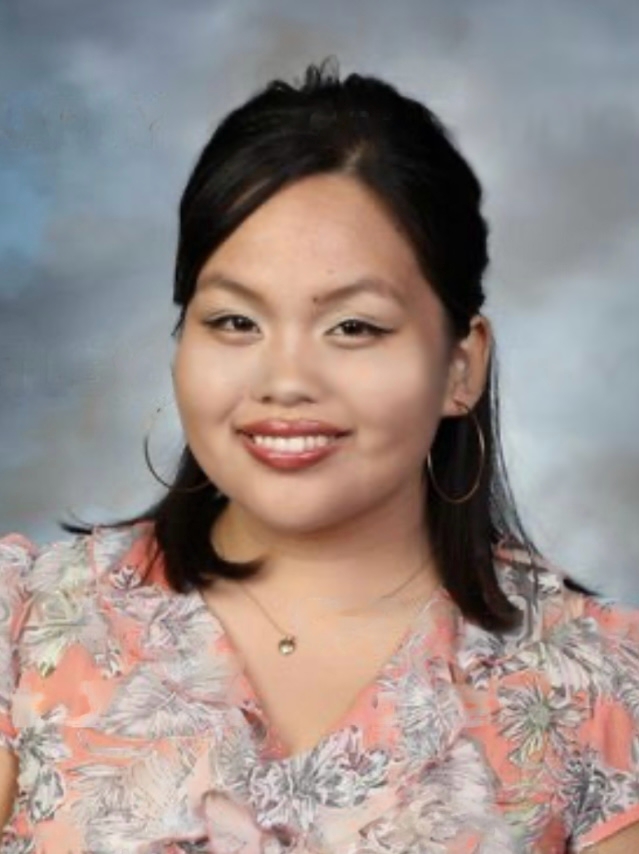Protecting Our Vote Protects Our Future
It’s Time to Look Toward Midterm Elections, Where the Real Work Toward Preserving and Protecting Democracy Happens
Mia Lazo
November 5, 2025
With the 2025 off-year elections behind us and the 2026 midterm elections just one year away, it’s a good time to start looking ahead to next year’s election.
It may be easy to dismiss midterm elections as less important than presidential elections. But midterms are where so much of the real work of democracy happens. Governors, senators, representatives, mayors, and local officials all make decisions that ripple through our daily lives. Whether it is health care, education, housing, or infrastructure, these choices impact us directly.
Today, threats to voting are real, starting with barriers to voter registration.
Voter registration is more than paperwork; it is a vital first step toward protecting our democracy and building the common good. The common good depends on broad participation. When more of us are registered and engaged, government decisions reflect the needs of the many, not just of the wealthy or politically powerful.
But there are constant efforts to impose burdensome identification requirements to voter registration being proposed by the President, members of Congress, state legislatures, and before regulatory agencies. The single demand of requiring U.S. citizens to show in person a birth certificate, passport, or other document proving citizenship when they register or re-register to vote could bar from voting as many as 21 million U.S. citizens who don’t have these documents readily available. This attacks women, Immigrants, those affected by weather disasters, working people, and those living in rural communities.
Even more troubling, the U.S. Citizenship and Immigration Services (USCIS) recently banned registering new voters at citizenship ceremonies, a time when new Americans should be most welcomed into democratic life. Add to that the growing restrictions on mail-in ballots, such as reduced drop boxes and stricter ID requirements, and you see the trend: Some of our lawmakers protect the elite by making it harder for so many of us to exercise our basic right to vote.
My family has our own story of what can happen when We the People don’t have a say in our own future. My parents fled to the U.S. to escape the oppressive and corrupt Marcos dictatorship of the Philippines. In 2022, the son of the former dictator was elected president, as the wealthy wanted to protect their interests. While billions of pesos went into fraudulent infrastructure projects, cities living without infrastructure continued to suffer devastating floods. Typhoons damaged farms, roads, and other infrastructure, affecting nearly 907,000 families, or more than 3.4 million people (about the population of Oklahoma). With landslides, flashfloods, electrocution, and drownings, communities saw their homes washed away while those in power enriched the pockets of their billionaire friends. This kind of corruption does not happen in a vacuum; it thrives when leaders face little accountability and when citizens are too discouraged to demand better.
The same risks exist here in the United States. When fewer people vote, including in midterms, entrenched politicians have more room to cater to their donors rather than the communities they represent. Just as Filipino citizens watch their tax dollars vanish into the pockets of the elite, people in the U.S. face leaders who prioritize corporate lobbyists over working families. The connecting thread is clear: Unchecked political power always bends toward self-interest. Voting is how we check it.
Democracy does not collapse in one dramatic moment; it unravels slowly when people disengage, when voters participation falls, and when power ends up in the hands of wealthy elites able to buy figureheads and power centers in the government. By the time citizens realize what they’ve lost, it can be too late.
In Venezuela, democratic institutions were slowly hollowed out, one law and one election at a time. Leaders stacked the courts with loyalists, rewrote the constitution to expand executive power, and silenced opposition through censorship, harassment, and arrests. Elections became hollow performances to legitimize those already in power. The cost to ordinary citizens has been catastrophic. A country once among the wealthiest in South America now suffers from hyperinflation, poverty, and chronic shortages of food, medicine, and electricity. Millions have fled in search of stability, and those who remain endure long lines for basic goods, while corrupt elites live in luxury.
Here in the United States, we still have the tools to prevent that fate. Tanks in the streets may grab headlines, but the quieter erosion of voting rights is the greater danger. That is why registering now to vote for the 2026 midterms matters. Government leaders already line the pockets of their wealthy friends through tax cuts. But every voter registration represents a person who is ready to hold people in power accountable. Every ballot cast is a reminder that this country belongs to all of us, not just the privileged few.
The example of the Philippines shows us what happens when corruption goes unchecked. My family back home knows it more than anyone else. Venezuela reminds us how quickly democracy can unravel. But the U.S. has a chance to choose differently if we show up. So, please check your voter registration, start thinking about your voting plan for next November, and encourage your loved ones, your colleagues, your neighbors, and even the barista who makes your coffee to do the same.
Visit vote411.org to register to vote, check your registration status, and more.
Mia Lazo is an environmental studies major at Mount St. Mary’s University in Los Angeles and a Sr. Carol Coston Fellow in NETWORK’s Young Advocates Leadership Lab (Y.A.L.L).








